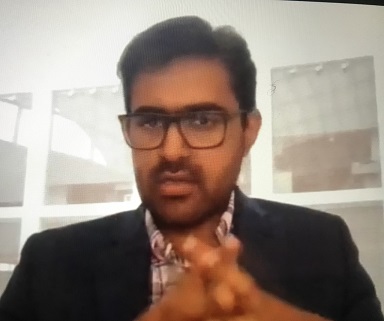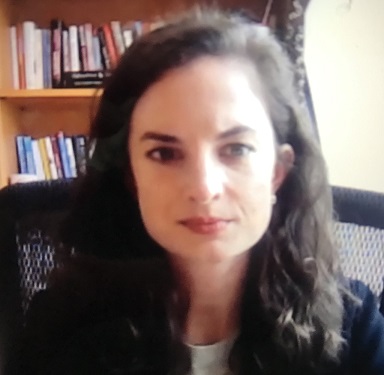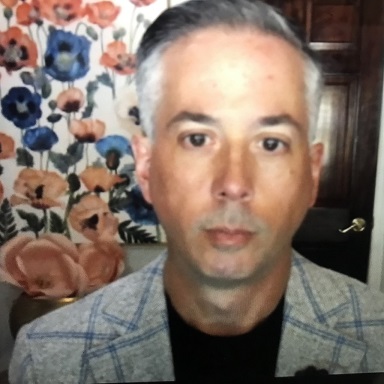Experts Address TTP and IS-K Violence
By Elaine Pasquini

Washington: Violent attacks by the Islamic State Khorasan Province (IS-K) and Tehreek-i-Taliban Pakistan (TTP) over the past four weeks in Afghanistan, Pakistan and Uzbekistan have raised security concerns in South and Central Asia as well as in the United States.

Adam Weinstein |

Asfandyar Mir |

Elizabeth Threlkeld |

Jonathan Schroden |

Tamim Asey |
On April 26, the Quincy Institute for Responsible Statecraft hosted a panel to discuss security issues and new counterterrorism strategies to address the rising threats.
Elizabeth Threlkeld, director of the Stimson Center’s South Asia program and a former US foreign service officer who served in Islamabad and Peshawar, stated the spillover effect of violence within Pakistan after the Taliban takeover last August that many people predicted was playing out now.
Since the US withdrew from Afghanistan last summer, questions remain about what sort of counterterrorism cooperation will be possible going forward between the US and Pakistan, she said. There is a diplomatic awkwardness now as Pakistan engages with the Taliban government in Kabul, while the US does not recognize the new leadership in Afghanistan, she added.
With the increasing attacks in recent days along their shared border, this is a critical time in the Pakistan-Afghanistan relationship, Threlkeld said. The suicide attack on Chinese nationals at Karachi University by the banned Baloch Liberation Army (BLA) on April 26, she predicted, will “bring the terrorist threat back up to the front pages of the newspapers.”
From the US perspective, “diplomacy is the key here,” Threlkeld noted, along with “engaging with the threat as it exists rather than presupposing the solution from what we have tried previously.”
Jonathan Schroden, director of the Center for Naval Analyses Countering Threats and Challenges program, called the recent attacks by IS-K in Pakistan and Uzbekistan “disconcerting” in terms of IS-K’s “ability and willingness to attack externally,” which should be of concern to the US government. “We’re, hopefully, far from seeing what happened in Iraq and Syria from happening in South Asia,” Schroden said, “but if you were to map out warnings and trends in that direction, regional attacks by Islamic State would be one of those indications and warnings.”
To fight these threats the US should go beyond its traditional methods of building covert intelligence networks inside Afghanistan, but utilize cyber tools and open source information collection, he advised.
Focusing on capacity-building in countries in the region would also be more productive, Schroden said, than trying to negotiate basing access for US drones in either Pakistan or a Central Asian state.
Asfandyar Mir, senior expert at the United States Institute of Peace, noted IS-K came into international focus after the group’s attack on Kabul international airport in August 2021. Going forward, Mir predicted IS-K will target senior Taliban officials, ethnic minorities and stage more cross-border attacks.
As to anti-Pakistan militancy, the TTP, Mir claimed, is the biggest beneficiary of the Taliban’s takeover and is gaining strength in Afghanistan.
According to Mir, the Taliban are politically advocating for the TTP before the Pakistani government, pressing Islamabad to make concessions to the group. The Taliban’s permissive environment has allowed the TTP to build “a war machine for a long-term attritional campaign in Pakistan,” he stated. In addition, “the Afghan Taliban rank-and-file may be joining the ranks of the TTP which is a very troubling development.”
Adam Weinstein, research fellow at the Quincy Institute, pointed out the concern of possible violence perpetrated by anti-India groups, “because all it takes is one large-scale terrorist attack inside India to exponentially raise tensions between India and Pakistan which are both nuclear powers.”
Tamim Asey, executive chairman of The Institute of War and Peace Studies and Council on Foreign Relations of Afghanistan who served in various departments of the Islamic Republic of Afghanistan, criticized the actions of both Pakistan and the United States in the region.
By not taking the Taliban threat seriously enough in the past, “Pakistan is suffering from the Frankenstein that they have built for themselves,” Asey argued. Once they took over, it was just a matter of time before the Taliban would become a “critical national security threat,” he added.
These recent attacks and looming threats have affected the entire region, he continued. “The Taliban is now on a collision course with all of Afghanistan’s neighbors.” Iran just deployed tanks on its borders for the first time and Uzbekistan and Tajikistan are getting attacked.
The abandonment of Afghanistan by the US-led coalition has turned it into a “safe haven for various Islamic militants,” he opined.
Amid all of this, Asey said, “the US is doing what it does best: repeat history. In the 1990s it abandoned and regionalized the Afghan problem. They are doing the same thing – abandoning and regionalizing the Afghan problem.”
Because of the scars of the past two decades, Asey said, neither the US nor the West will engage in any major way in Afghanistan, but what will happen is “the US will react when it is actually hurt.” It’s just a matter of time, he insisted, when there will be “another 9/11-style attack either in Europe or the US.”
Some US security, intelligence and military officials have warned of the perils of ignoring Afghanistan, Asey stated. “It is astonishing to me that that is falling on deaf ears and I am very sad to see that this is escalating and playing out as many of us…estimated would happen.”
Counterterrorism can only be effective, Asey argued, if there is good intelligence on the ground and that is missing right now. “Counting on the Taliban to take over counterterrorism is just a no-go,” he said. “And the last eight months have shown that.”
(Elaine Pasquini is a freelance journalist. Her reports appear in the Washington Report on Middle East Affairs and Nuze.Ink.)

